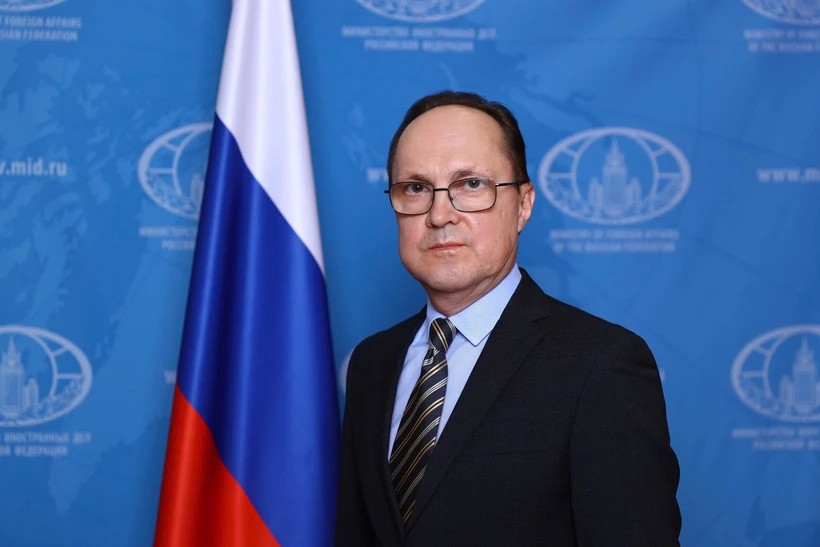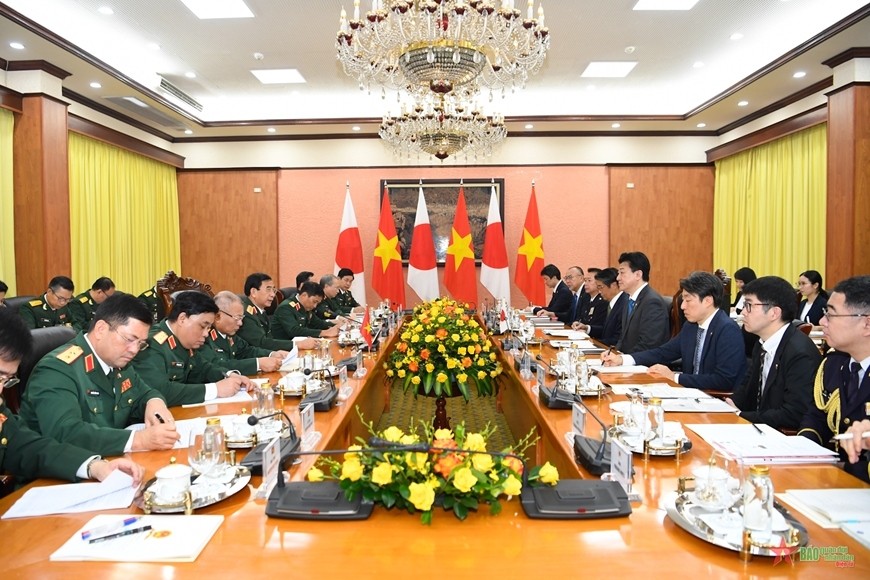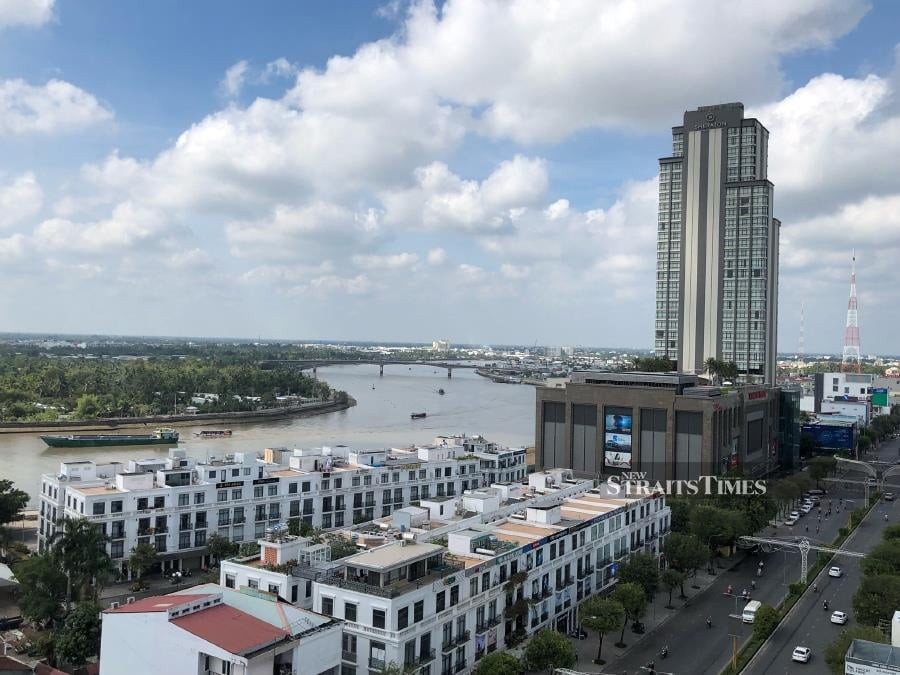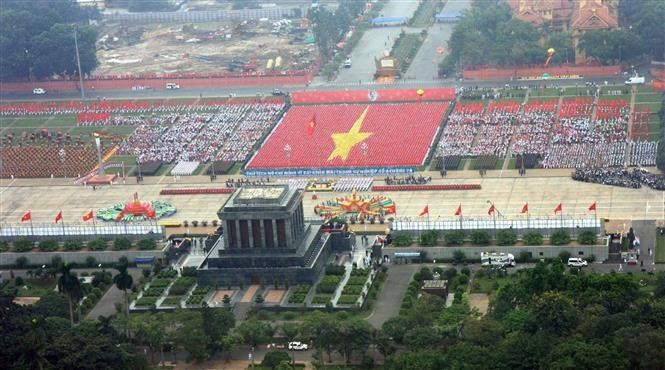Guideline Creates a Driving Force For Renewal and Development
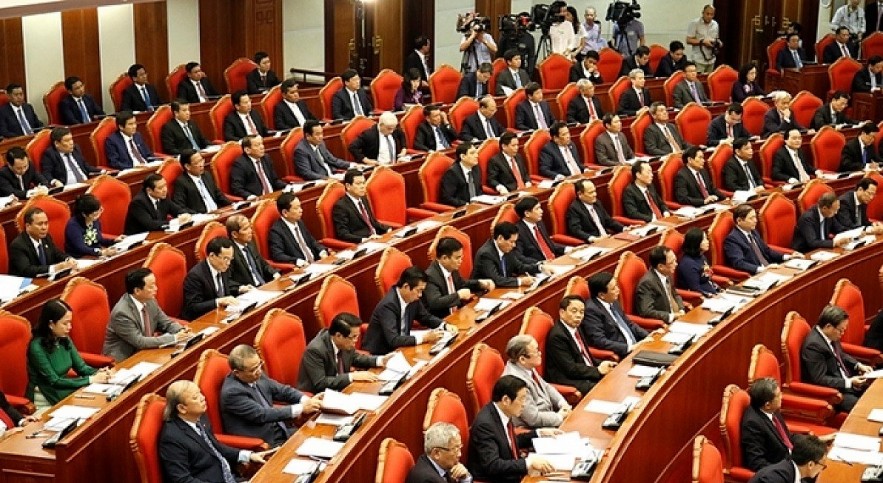 |
| The guideline will create a “corridor” to ensure fairness, objectivity and humanity for cadres who dare to think, dare to do, to be dynamic and creative. Photo: Nhandan |
The recently published Conclusion has attracted the attention, excitement and support of a large number of cadres, party members and the masses. It can be seen that in the process of leading the revolution, the Party and State always encourage and promote the dynamic and creative spirit of cadres, party members and people from all walks of life.
During his lifetime, President Ho Chi Minh once advised that in order to build socialism, first of all, there must be socialist people. In the cause of national construction and defence, the Party's guidelines, resolutions and directives have always given attention to this content in order to build a contingent of qualified cadres to serve the country and people.
The cause of Doi Moi (Renewal) initiated and led by the Party was carried out with the spirit of dynamism and creativity as well as the efforts made by the entire Party and people, including the very important contributions of many generations of leaders and managers. Doi Moi has led to a spectacular breakthrough for Vietnam’s economy, bringing the country out of a state of stagnation, poverty and backwardness.
However, in addition, the work of Party building and building a contingent of cadres still has limitations and shortcomings. The institutionalisation and concretisation of some Party resolutions is still slow; the organisation of implementation is still a weak point; some policies have not really created motivation for cadres to be fully committed to their work; and there is no mechanism to protect cadres who are dynamic, creative, dare to think, to speak, to do, to take responsibility, and to cope with difficulties and challenges as well as act decisively for the common good, according to the Nhandan.
The Party building work of the 13th tenure of the Party Central Committee has focused on strongly renewing and improving the quality and efficiency of cadres' work; building a contingent of cadres at all levels, especially at the strategic level, with heads of all levels having sufficient quality, capacity and prestige on par with their tasks. Cadres’ work must really be the key task, the protection of cadres who dare to think, dare to do, dare to take responsibility for the common good must go hand in hand with the screening and removing from working positions of those who do not have sufficient qualifications, capacity and prestige.
In order to encourage and protect dynamic and creative cadres for the common good, the Politburo has requested Party committees and organisations at all levels, especially those who are leaders, to raise their awareness and responsibility. The Conclusion clearly shows the determination and new steps of the Party with a focus on building a contingent of cadres at all levels, especially at the strategic level, with sufficient quality, capacity and prestige, on par with their tasks. This is also a solution to build and perfect the law-governed socialist State.
The Conclusion No.14 is considered a guideline for cadres and party members in the process of performing their duties and responsibilities. Emphasis is placed on encouraging cadres to have creative thinking, find innovative ways of doing things, and remove and solve bottlenecks in mechanisms and policies, etc., which will bring practical effects and create strong and positive changes for the common development.
The guideline will also create a “corridor” to ensure fairness, objectivity and humanity for cadres who dare to think, dare to do, to be dynamic and creative. On the other hand, it also affirms discipline, a “steel fence” to strictly handle the abuse of the guideline to cover up corruption and negative acts, and violations of the Party’s regulations and the State's law. The Politburo has also required periodic reviews, summaries, and promotion of information dissemination and replication of effective and innovative pilot models and solutions,
The issue of innovation and creativity was posed by the 13th Party Congress as an urgent requirement of the cause of national construction and defence in the new situation. From the conclusion, the Party once again pointed out that dynamism and creativity for the common good is an important criterion of cadres and party members, a necessary quality of revolutionaries.
The Conclusion shows the determination of the Party in the process of leading the implementation and realisation of Party’s resolutions. The current task of the Party committees and relevant agencies at all levels is to concretise the guideline of the Party into specific mechanisms and regulations; as well as devise plans to organise the implementation synchronously and effectively at all levels, thereby creating a driving force for the cause of renewal and national development for the goal of wealthy people and a strong, democratic, fair, and civilised nation.
The third wave of socialism and renewal in Vietnam
On the Nhandan (People Newspaper), Prof. Dr. Michael Brie - Senior fellow at the Institute for Critical Social Analysis of the Rosa Luxemburg Foundation of the German Left Party writes that:
The Doi Moi (renewal) that Vietnam has carried out over the past 35 years is a creative approach to socialism that is of great significance and is part of the very early start of the third wave of socialism that we are still in the early stage of. It was a period of searching for a superior alternative to save human civilisation from destruction in the face of the fundamental crisis of capitalism civilisation.
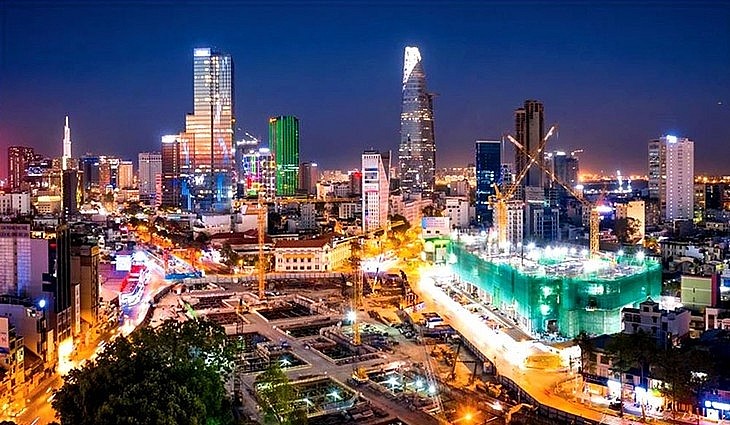 |
The 6th National Congress of the Communist Party of Vietnam in 1986 initiated the Doi Moi, opening a new stage for socialism development not only in Vietnam. Unlike the Soviet Union and the socialist countries in Central and Eastern Europe, Vietnam has achieved far-reaching economic, political and social transformations and successfully combined the rapid and effective innovation with political stability under the leadership of the Communist Party of Vietnam. At the same time, Vietnam has also made efforts to improve social conditions and reduce poverty for the majority of people. The achievements that Vietnam has achieved have clearly become part of the world historical movement and can be called the third wave of socialism.
 |
| The creative use and development of President Ho Chi Minh and the Party is not to forget the rights of any social class |
In the writing entitled “Some theoretical and practical issues about socialism and the path to socialism in Vietnam”, Party General Secretary Nguyen Phu Trong highlighted the overcoming of typical limitations during the second wave of socialism through the Soviet experience, as saying “We have in stages addressed simplistic ideas we held previously, such as homogenising the end goal of socialism with the task currently at hand, one-sidedly stressing production relations and equal distribution without fully realising the need to develop the productive force in the transition period, not recognising the existence of other economic sectors, putting the market economy in the same basket as capitalism, and viewing the rule-of-law state in the same light as a bourgeois state.”
This is a time when the world needs to continue to conduct discussions about socialism in the context of a new and profound crisis of capitalism. Thirty years after the collapse of the Soviet Union, it is time for a new perspective on socialism. To many Western observers, the end of the Soviet Union seemed to be the permanent eradication of any systemic challenge to capitalism. But if you focus only on the ruins of the Soviet Union, the view will be obscured.
The profound crisis of contemporary capitalist civilisation shows that socialism cannot completely disappear from the course of world history but is simply being renewed. And finding compelling answers to the challenges of modern capitalism is more urgent than ever. Modern capitalism has existed for more than 250 years, and the history of modern socialism is as long as modern capitalism.
The British Industrial Revolution demonstrated that the productivity of society could dramatically increase within a few decades. This has never happened in human history. A comfortable life is not just for the rising middle class, it really can be for everyone. However, the reality is not so. Social reformer Robert Owen (1771-1858) wrote: “The present world is saturated with wealth - with an inexhaustible and constantly increasing source of wealth - but misery still abounds! That is the reality of human society today. There could be no worse settlement than what is happening now in all the nations in the earth.” So, the first socialists and communists were posed with the problem of reorganising society.
The first wave of socialism gave rise to the full range of basic forms of socialism, from revolutionary vanguardism, reformism to anarchism. Secret associations, political parties, widespread social and political movements of workers, or even revolutionary forces of slaves and peasants were all part of the wave. Marxism emerged with a scientific basis that formed outlines of the transition to a post-capitalist society in practice.
The first wave of socialism was the theoretical and political formation of socialism in the context that capitalism was developing on a global scale in the nineteenth century. Liberalism and conservatism still dominated the political arena. This situation had changed, firstly due to the Russia’s October Revolution in 1917 and then the coming to power of social democratic parties after the First and Second World Wars. The Bolsheviks not only succeeded in asserting their power from the backdrop of the civil war, but also put the Soviet Union on the path of industrial modernisation. A force emerged that delivered a decisive victory over Hitler's Germany, forming the socialist camp and maintaining a competitive position with the United States and the West for decades.
The 1949 victory of the People's Liberation Army led by the Communist Party of China not only ended China's period of imperial domination and civil war, but also paved the way for China to become a modern power with influence in a different way from the Soviet Union. Social-democratic reforms in Northwestern Europe after World War I and especially after World War II have created social welfare states with capitalist element. Meanwhile, America's New Deal policy created a symbiotic relationship between capitalism and the well-being of the vast majority of people. Capitalism, democracy, and increasing standards of living seem compatible.
However, in the early 1970s, it became clear that the aforementioned successes could not be maintained. A deep crisis took place in the Soviet Union and the socialist countries. The pace of economic, social, cultural and political innovation in socialist countries slowed down significantly compared to Western countries. Vietnam was unable to turn its great victory in the resistance against the US into a new outstanding dynamic development of modern production forces.
Western welfare states as well as developing countries faced a growing need for reform. Soviet-influenced European countries as well as Western social democracies could not find a satisfactory answer to these challenges and were swept up in the new wave of liberalism. Throughout the twentieth century, socialism proved its capability of being a serious contender against capitalism. But socialism in the twentieth century was unable to sustain its competition with capitalism and fell into a deep crisis.
However, contrary to many people’s thought, the collapse of the Soviet Union did not mark the end of socialism; it could be seen as leading to the birth of socialism 3.0. Firstly, in its moment of victory, capitalism had entered a deep crisis for a long time that had reached its systemic limit. When the weaker Soviet system disappeared, the capitalism was still not as dominant as it once was. Capitalism has the advantage of pricing capital with the core interest of capital accumulation. C. Marx called this a “temporary necessity” to unleash productive potentials that would then allow the free development of each individual on the basis of increasing social wealth.
Today, in the highly developed societies of the West, these conditions have long since been perfected. Capitalism has largely accomplished its mission. Capitalist economies are destroying the natural foundations of human life; an ecological crisis is taking place. Material abundance cannot be exchanged for idle time, developed creativity and mutual affections as well as cannot bring about a cultivated society. A crisis of ideals is taking place. Capitalist exploitation and its limitations are not incompatible with democracy, leading to a crisis of political legitimacy. Neo-liberal globalisation and financial capitalism are dividing the world, leading to a crisis of international security. Modern capitalism has gone through many crises and is approaching a turning point of fundamental transformation or it will destroy itself.
The Doi Moi (Renewal) cause that Vietnam has carried out over the past 35 years is a creative approach to socialism, has a great significance and is a part of the early start of the third wave of socialism that we are still in its early stage. This is the period of the search for a superior alternative solution to save human civilisation from destruction amidst the fundamental crisis of capitalist civilisation. I would like to highlight two features of this alternative solution:
Firstly, we have learned from the second wave of socialism that an alternative to capitalism can only exist if it is highly innovative. Such solutions must become learning societies, but not the bureaucratic concentralisation such as with the Soviet Union nor primarily competitive systems. Like US. Nobel laureate Elinor Ostrom argued, multi-centred societies are best at boosting development based on solidarity.
According to Ostrom, multi-centred systems can be instrumental in boosting structures to self-organise and overcome the limitations of purely decentralised structures. External resources, which are considered means to combat tyranny, along with others, will remedy the inertia provide objective knowledge, establish an open learning environment and mechanisms addressing conflicts that can help realise the potential of self-organisation. The transition to the industry 4.0 and connected economy is a prerequisite for this. The cooperation and competition complement each other. Vietnam’s Doi Moi cause has had many such elements.
 |
| Vietnam’s Industry 4.0 strategy will need a completed legal framework, Photo:Vir |
Secondly, socialism 3.0 can only succeed if it facilitates the emergence of a new civilisation. This means the preservation of the achievements of capitalism and its ability to innovate regularly and lead to a new balance in the relationship between man and nature above all. One can also speak of a harmonious civilisation that connects contradictions in unity. The exploitation of nature must be replaced by concern for the balance of the natural environment.
Today, everywhere, we treat nature as a source for the extraction of raw materials and turn it into a dumping ground of the metabolism, warming the atmosphere and poisoning oceans. The earth needs to be treated like a garden. Accordingly, it must be nurtured, protected and nourished by the renewable energy of the sun. In a harmonious civilisation, a life that depends on a high-paying job should be replaced by a balance with mutual concern, social commitment and leisure time. A developed society will emerge, focusing on human creativity, human relationships, and the diversity of nature. Achieving consensuses based on the democratic and open participation will take precedence over partisan competition and political representation.
The progress beyond real capitalism will be connected with pre-capitalist society and forms of democracy that encourage the participation, connection among work and entertainment and the sufficiency here and now. What capitalism has negated will continue to emerge again during the negation of capitalism – the negation of the negation. The rich national culture and traditions of Vietnam in particular have created many foundations for such a journey.
A society based on Socialism 3.0 requires several prerequisites including: (1) High labour productivity and the ability to achieve it going hand in hand ecosystem protection (i.e., with high degree of reproducibility); (2) The diversity of forms of property consistent with the freedom of individuals contributing to the freedom of all people in solidarity; (3) Bodies consulting and making political decisions creating an environment for the unity in diversity; (4) A culture of solidarity; (5) An international system that allows nations and peoples to develop together in peace.
Capitalism is not suitable for such a sustainable and solid development. The different approaches to socialist innovation - socialism 3.0 - must demonstrate the fulfilment of the above requirements. If successful, the 21st century could become the century of global realism. With the third wave, socialism will also fulfil its historical mission. I believe that Vietnam will continue to make great strides in this direction.
 | Vietnam Moves Down 2 Spots to 44th Rank in Global Innovation Index 2021 Vietnam has been ranked 44th by the World Intellectual Property Organization in the Global Innovation Index 2021. |
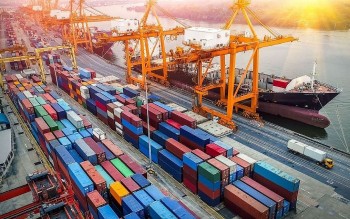 | VinaCapital Chief Economist: Will Vietnam Gain 'Miracle' Development After Covid? According to VinaCapital Chief Economist, Covid-19 will not leave a big scar on Vietnam like some other emerging markets as forecasted by the World Bank. ... |
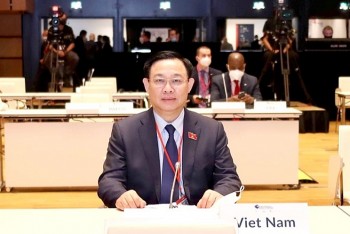 | NA Leader Hails UN's Contributions To Vietnam's Development Attending the fifth World Conference of Speakers of Parliament (WCSP5) in Austria, National Assembly (NA) Chairman Vuong Dinh Hue thanked the UN for its timely ... |
Recommended
 Focus
Focus
35 Years of FES in Vietnam: Fostering Dialogue, Advancing Equity
 Friendship
Friendship
VUFO Appreciates Contributions of American Veterans in Overcoming Consequences of War
 Focus
Focus
VUFO, FES Continue to Promote Cooperation to Support Development
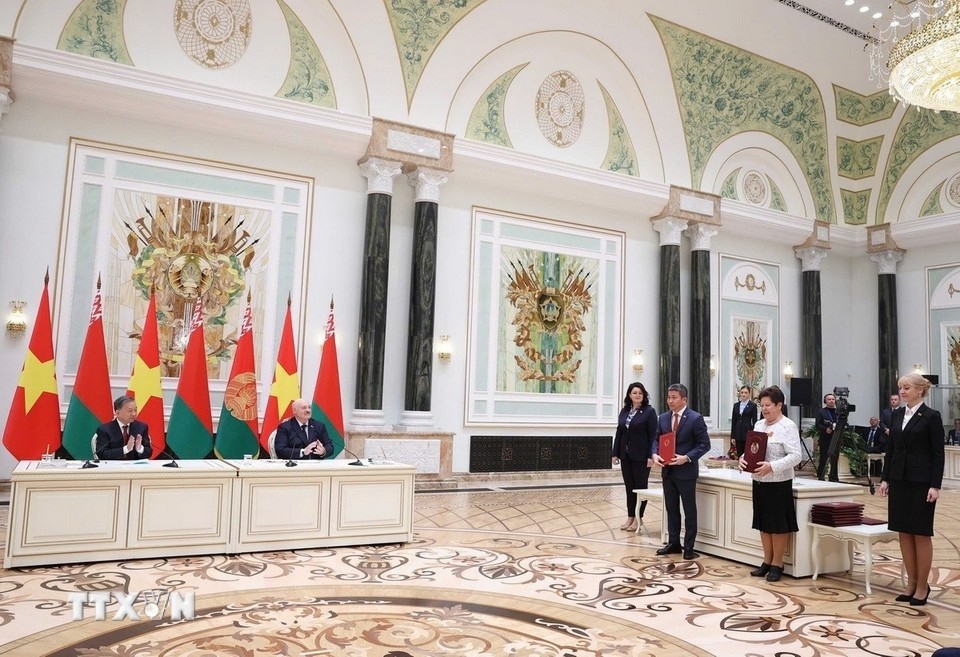 Focus
Focus
Vietnam - Belarus Sign Cooperation Documents
Popular article
 Focus
Focus
Vietnam-Austria Relations: Unlocking the Potential for Cooperation in Key Areas
 Focus
Focus
Overseas Vietnamese in Russia Welcome Vietnam People's Army Delegation at Red Square
 Friendship
Friendship
Vietnam Deeply Values and Remains Grateful for Unwavering Support from Intl Friends
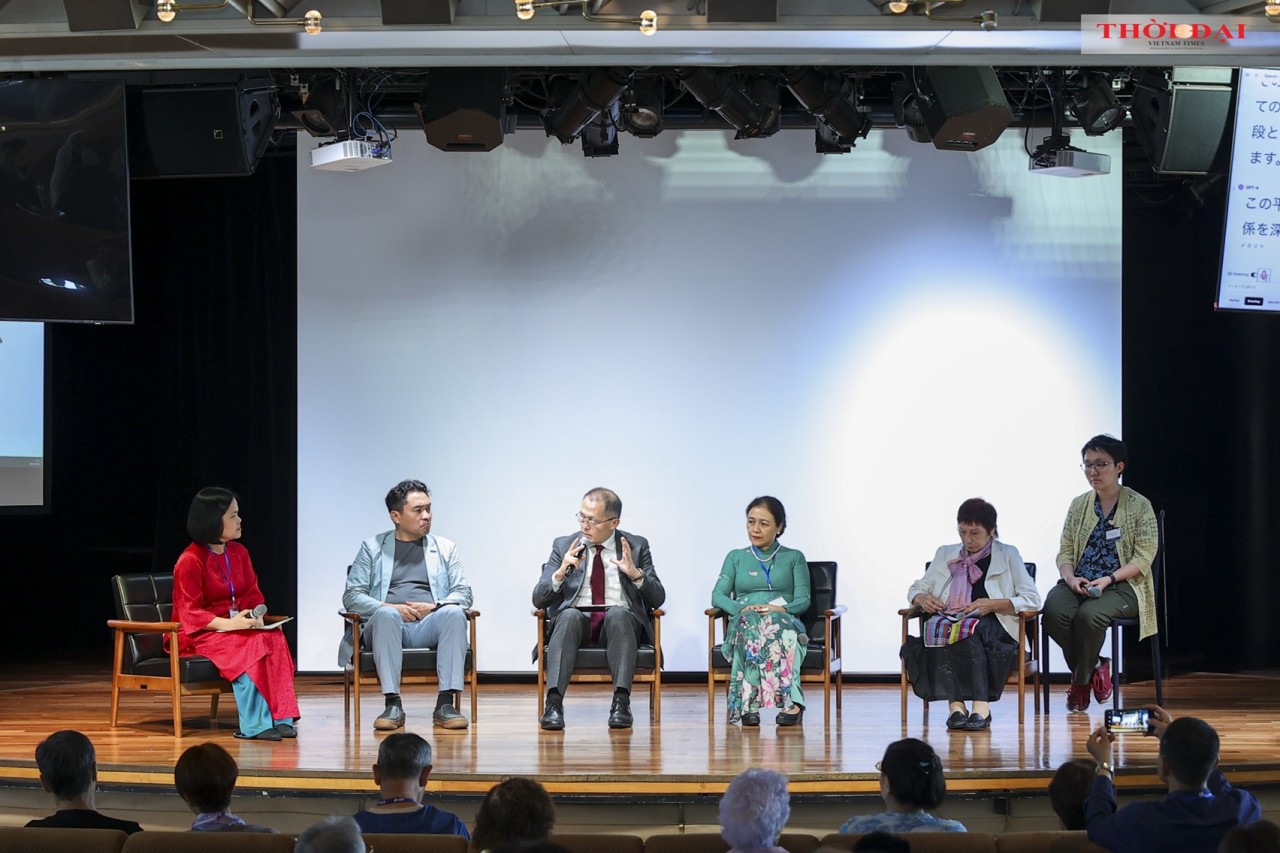 Focus
Focus




